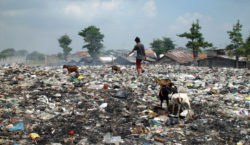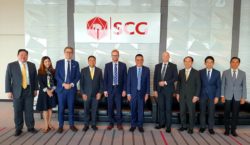On 5-10 November Team Finland will be visiting Vietnam with Mr. Petri Peltonen, Under-Secretary of State, Ministry of Economic Affairs and Employment.
Finland’s business delegation to Vietnam will bring companies from the following focus sectors: Waste-to-Energy, Bioenergy and Water.
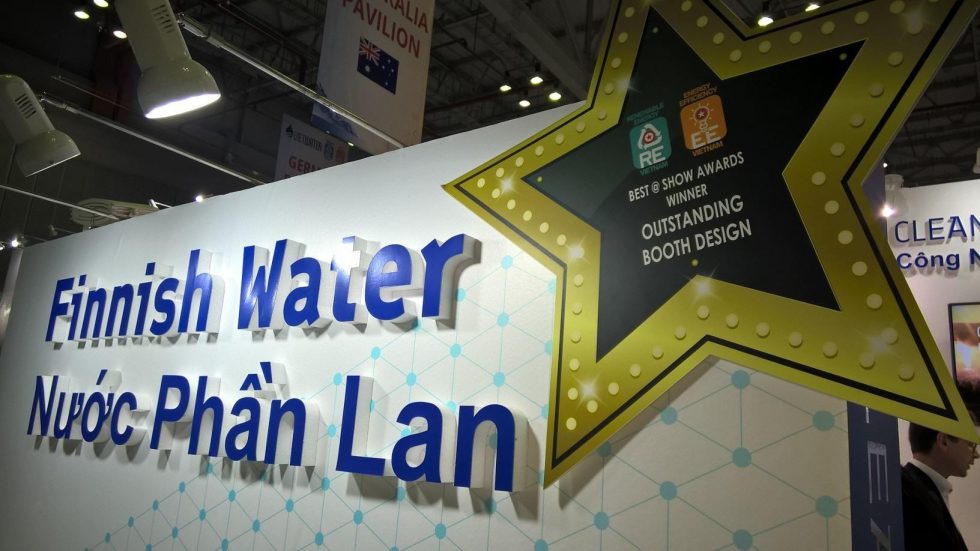
Vietnam’s cleantech and energy market is one of the fastest growing in the world, and full of interesting business opportunities for innovative solutions and companies.
Why Vietnam?
• Vietnam is a major center of growth within world’s fastest growing economical region of Southeast Asia. Vietnam’s water and energy sector – where Finland has built a good reputation as a reliable partner through close to 40 years of development cooperation – has been growing rapidly in the recent years, and there is an increasing demand for new and innovative solutions.
• Vietnam is a country of over 92 million people, and the country’s urbanization trend creates a huge demand for waste handling, wastewater processing and clean energy solutions in the cities and municipalities. Finnish clean tech companies can possibly provide just the right kind of knowhow and technological solutions for the problems that Vietnamese Government and companies are looking to solve. In this context, the potential for building long lasting business partnerships is good.
Vietnam’s energy reform provides business opportunities
EVN (Vietnam Electricity) is Vietnam’s national energy corporation, established in year 1954. The company’s reform process began in 2003, and has been going on ever since. The reform of Vietnam’s energy market has been one of the key strategic projects of the government of Vietnam, and it has been widely supported by institutions such as the World Bank. The purpose is to separate and partially privatize some parts of EVN and create a competitive wholesale market for electricity.
The expansion of energy sector and increase in the use of electricity have also caused a vast increase to Vietnam’s Co2 emissions. Increasing energy efficiency and clean solutions is included in the government’s long-term targets. This news is especially good for Finland, since we have a huge amount of knowhow in clean and energy efficient solutions and technologies.
Currently, hydropower is the biggest source of energy in Vietnam, covering approximately half of the country’s e energy production. The other half is almost totally covered by fossil fuels, including mainly gas, coal and a small segment of oil. Renewable fuels still cover a small minority of the total energy consumption, but for example, the massive amount of waste produced by the country provides excellent opportunities for waste-to-energy and other waste-to-value solutions. The government has also plans to increase the use of solar power in the upcoming years.
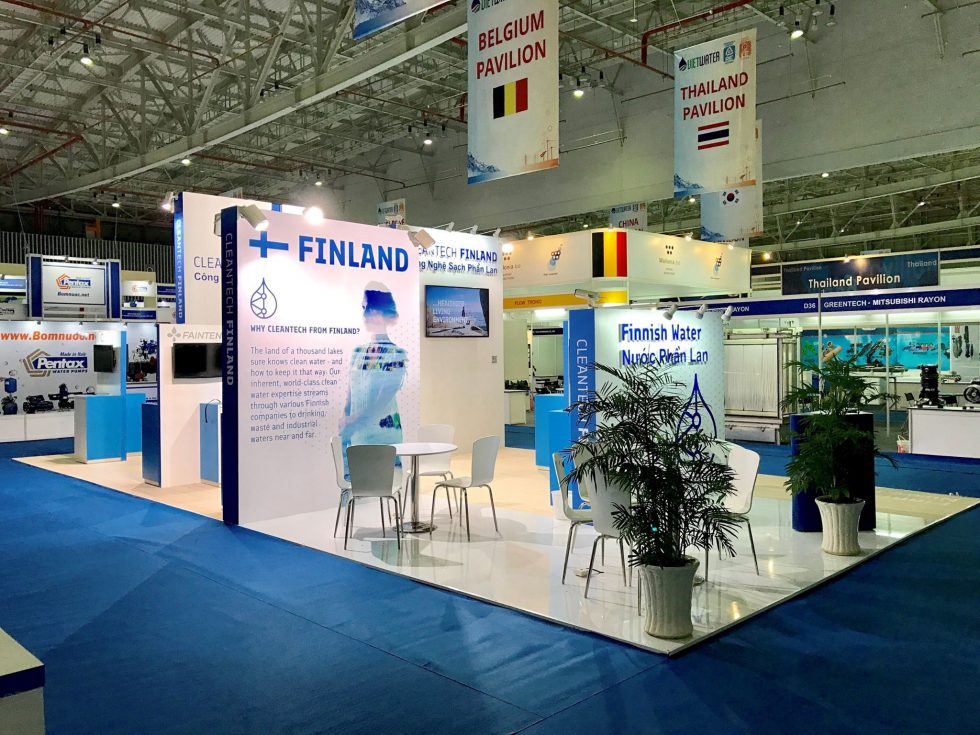
Water sector in Vietnam
Unlike Vietnam’s neighboring country China, Vietnam has no shortage of water resources. Approximately 70% of the people live in low-lying delta areas, which have a plentiful supply of water and rich soil for farming. Vietnam has also 7500 water storage facilities located around the ten major river basins of the country. In addition, the annual rainfall is between 1-2 meters in the most densely populated areas of the country.
The water sector’s challenges in Vietnam lie in water quality and management. Due to the country’s rapid urbanization and development of industrial zones, wastewater management has become a challenge in the cities and municipalities. According to the Ministry of Construction, only 15% of all urban wastewater was adequately treated in 2016. Majority of the wastewater is still being discharged back to the environment.
These problems, however, create a plenty of business opportunities in the water sector, which Finland has been known for in Vietnam for decades due to the past development coordination projects. Finland has excellent knowhow and technology in water management and treatment, and Vietnam has a dire demand for new solutions.
New technologies and solutions are needed in all areas related to water in both private and public sector investments, and for private and industrial clients alike. Key technologies and services are in demand in areas such as waste-to energy, filtration, digestion, denitrification, monitoring and testing, engineering, procurement, and construction services.
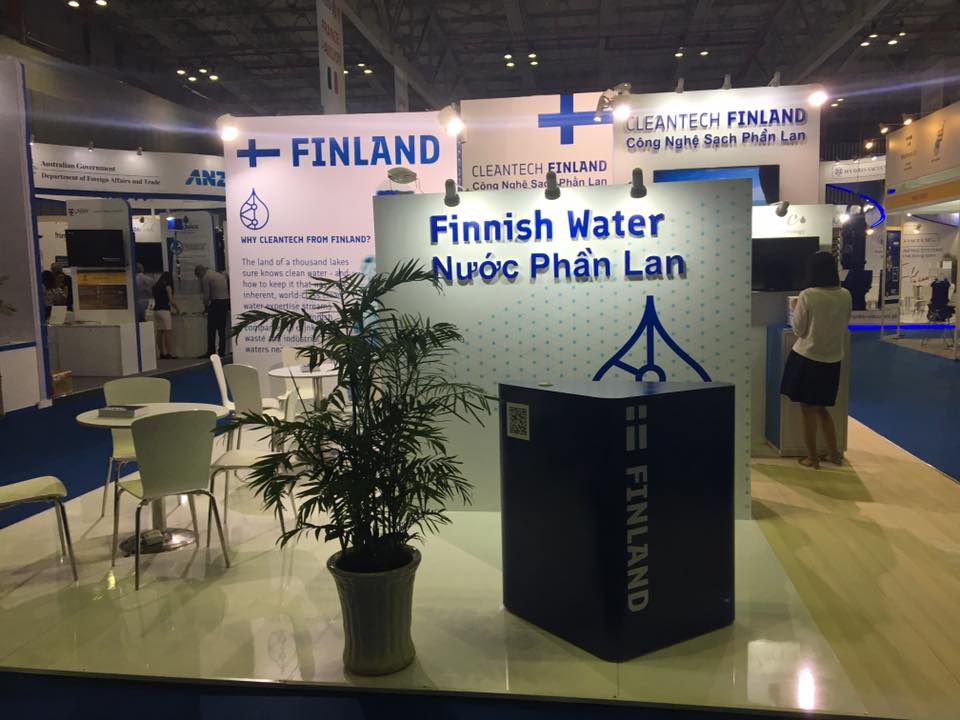
Sector overviews and foresights
Industrial wastewater treatment
Stipulated by law, the wastewater generated by industrial factories must be treated with a certain safety standards before discharging to the environment. In industrial parks, there is normally a centralized treatment plant owned and managed by the industrial park administrator and an individual treatment plant managed owned and managed by an individual factory itself. However, the challenges lie with factories located outside of the industrial parks, since they are lacking resources to treat their wastewater properly.
The awareness of the owners and managers of the factories regarding environmental issues has risen in recent years, which is a positive sign indicating open business opportunities. High quality Finnish innovations and solutions could be targeted for factories that have existing treatment plants, but want to enhance their ability in water management, and for under construction factories that aim for highly efficient water treatment and eco-friendly water recycling.
Urban wastewater management
Water management issues in urban areas, such as mixing of industrial wastewater and sewage water, causes problems in Vietnam’s rapidly growing urban areas. The governmental Urban Water Supply and Sewage Company normally manages the sewage water originating from households and rain, and industrial parks manage their own wastewater.
Improving the handling of urban wastewater and processing the production waste (such as sludge), provides interesting business opportunities for Finnish businesses.
Waste management and waste-to-value
Management of municipal solid waste (MSW) is one of the toughest challenges that almost every city and township faces in Vietnam. Currently, the most commonly used way of handling MSW is a landfill, accounting for 70-90% countrywide on average. The incineration of MSW is still limited in terms of efficiency and capacity.
Almost all of the authorities and environmental service companies in Vietnam acknowledge waste-to value, and the need for new solutions in this sector is widely present. The challenge for Vietnam is that the cost of generating energy from waste (W2E) remains higher than consuming fossil fuels. The market is open for innovative solutions that can help the government and private companies solve this dilemma.
In this sector, Finland’s knowhow and expertise is considered to be amongst the best, which creates a solid basis for new businesses to enter. Business opportunities for Finnish companies are present in e.g. the following areas:
- Incineration of sludge, MSW, hazardous waste, industrial waste for generating heat and composting
- Bio-chemical process (generation of biogas) applicable to MSW, highly organic waste from food processing industry, slaughterhouses, etc. to generate heat and/or electricity
- Combined MSW and agro-biomass to produce RDF (refuse derived fuel)
Program highlights:
• B2B meetings, seminar and matchmaking events
• Ministerial officials, authorities and third sector partners
• The key decision makers of relevant private and public companies
• Participating at Finland Pavilion in VietWater 2017 Renewable Energy & Energy Efficiency Expo
A joint Finland Pavilion will be set up for the 5th time. The Expo is targeted for professionals only and receives over 12 000 visitors yearly.
Source: Finpro Vietnam

